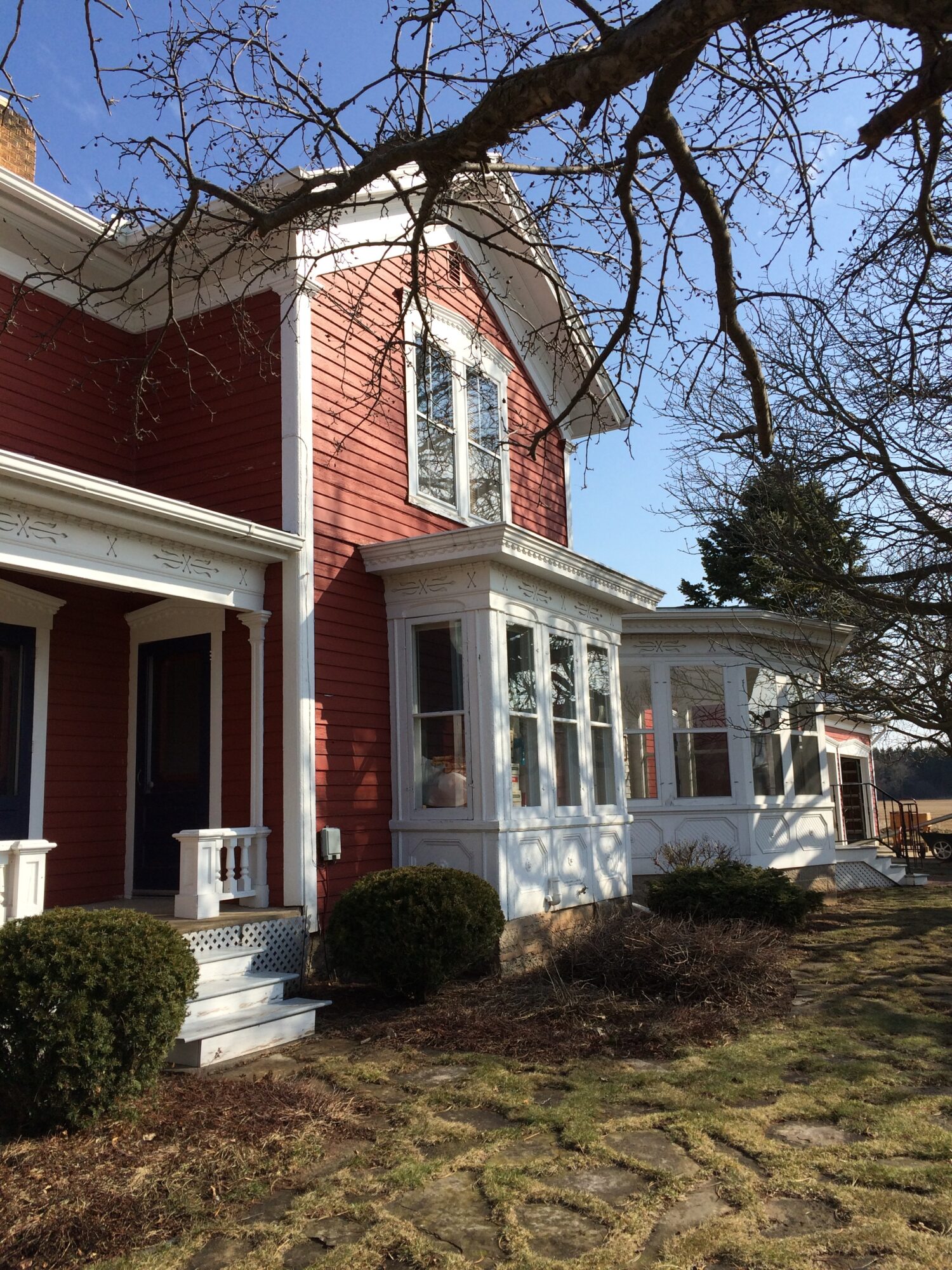Do you remember the day you left your childhood home? Or have you ever had to move out of a house filled with a lifetime of memories? Whether it was yesterday or decades ago, you probably remember it well and understand how emotional these milestone events can be. My husband’s family just went through one of these very emotionally draining and bittersweet life changes.
Peter’s childhood home
My father-in-law, Norrie, has been getting increasingly more forgetful over the years. Up until recently, he lived on the family’s homestead, a five-acre “farmette” where he had lived for over 45 years and where my husband took his first steps as a small boy. It is a beautiful property, complete with a gorgeous old farmhouse and three outbuildings. Although it hadn’t been farmed in almost half a century, the big barn at one time held a dozen milking cows with plenty of room for hay up above in the mow; the pig barn, long since torn down, once held six to eight sows and a boar; a tiny chicken coop could house maybe 25 birds. The other barn that once held horses and carriages has since been converted to a garage and storage space for tools and the lawn mower. The house and barns are all painted in the very traditional red with white trim and have been kept in immaculate condition.
As with any family home, the place is filled with treasured memories. Peter tells great stories of growing up in that beautiful house—of climbing (and sometimes falling from) the large oaks by the road, of building dams and redirecting the flow of their small creek, of waking to the sounds of cats batting colored eggs around the hardwood floors on Easter morning. The rope swing his dad had put up for him in the barn is still there—and has been enjoyed many times by our own daughters. A retired geology professor at the University of Wisconsin-Oshkosh, Norrie had piles of unusual rocks artfully arranged throughout the property. Now almost 20 years old, the tree we planted when my husband’s mother, Judy, died still stands in the middle of the yard. It was in the kitchen that Peter and I announced our engagement to his parents; it was in their living room that we exchanged Christmas presents and talked long into the night on countless occasions.
Norrie loved to tinker, he loved to garden, and he loved keeping the house and property in good shape. But it was all getting to be too much for dear Norrie to manage.
When it was decided that Norrie would move to a retirement home, my husband and I had THE talk. Should we move “back home” to Wisconsin…to keep what is arguably one of my favorite places on earth in the family? We’d be close to Norrie and close to my family—my parents, my sisters and their families. Our own children see their Wisconsin relatives but once a year…far too infrequently. We could move our entire farm business there, raising chickens, goats and sheep, making cheeses, and selling to the community as we do here.
But the reality far outweighed the dream. To make it as a farm business these days, you need much more than just five acres. Such a small parcel would limit the number of goats we could raise and would make feeding them much more expensive. The barns haven’t housed animals in decades… who knows how much work we would have to do to retrofit it all. Differing state regulations would have to be navigated, too. Wisconsin’s cheese industry is more tightly regulated and it would take us two years to complete the required coursework to become licensed cheesemakers there. Assuming they would accept our processing equipment and our previous experience is a small gamble. We’d certainly have plenty of hurdles to cross.
And then there’s the age factor…if only we were in our 20’s or early 30’s! I’d be excited at the prospect of starting all over, of packing up all that we have built and striking out anew. There are certain stages of one’s life that are perfect for that kind of challenge… and 45 ain’t it! We’ve built too much and worked too hard to build a life here in the Mohawk Valley. Yet it saddens me to watch the window close—a window that represents “going back,” of capturing those memories in real time, of getting back to the place I will always call home.
Then again, “home” is what and where you make it, right? Besides, the past is an awfully confining place to live. As much as it breaks my heart to let go of the old homestead back in Wisconsin, my head says it is the right thing to do.
Farming families have to cross this or a very similar threshold with every passing generation. Who will take over when the parents can no longer farm? Does the next generation even want to farm? Assuming the children want to continue the legacy, can they make a living at it? Smaller, older farms can require expensive updates to buildings and improvements to the land in order to make them home to a viable business. This can make an old homestead a big risk for the cash-strapped, aspiring young farmer. Of the multi-generational farm families we know, the process of transitioning is long and slow and is more often than not muddied by years of interpersonal issues—something not at all unique to farmers. Whatever the transition, such decisions regarding the family farm are never made lightly and are by their very nature, incredibly bittersweet.
